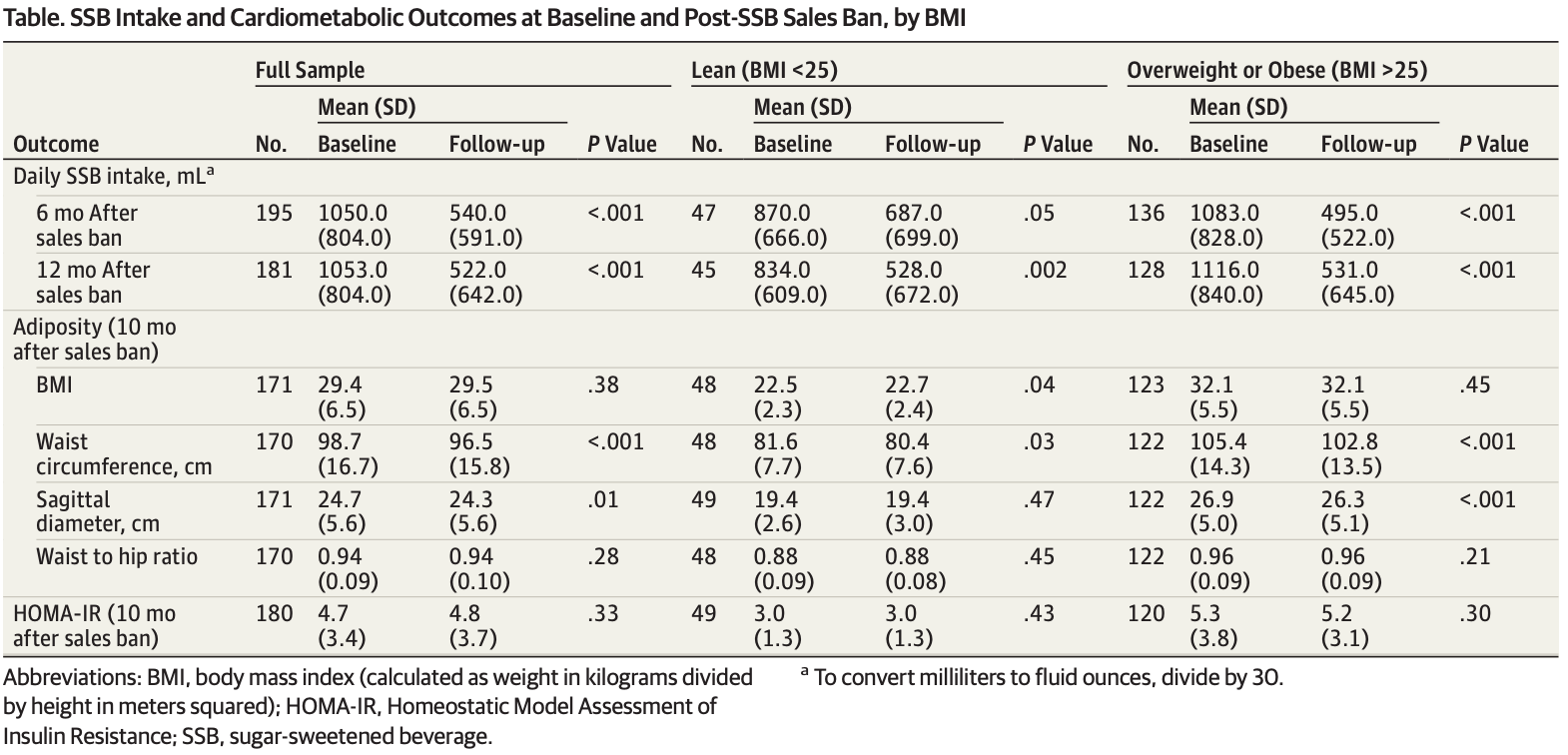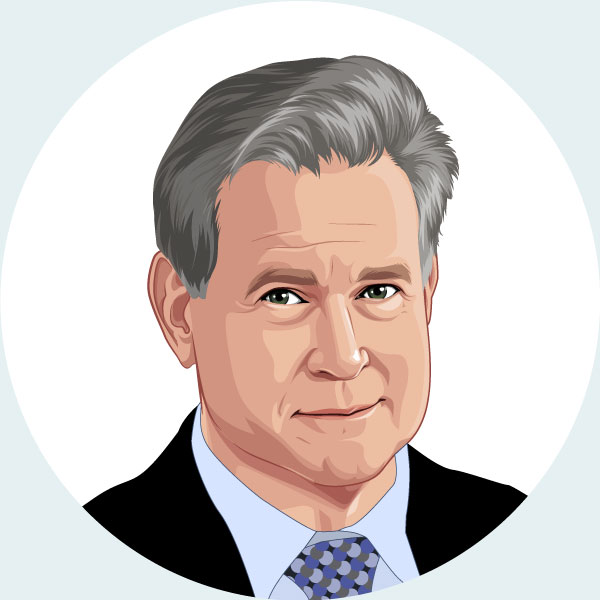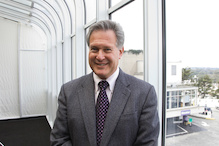In this before-after study and trial that included 214 adults who regularly drank SSBs, participants reported consuming less SSBs after a workplace sales ban and a reduction in waist circumference and sagittal diameter but no change in body mass index or insulin sensitivity. Those randomized to receive a brief motivational intervention had greater improvements.

“As rates of cardiometabolic diseases continue to rise, private employers are likely to face greater productivity losses and private health expenditures. The results of this study suggest that workplace SSB sales bans, if widely adopted, could add another layer of efficacy to existing SSB reduction strategies. At the societal level, private sector–driven change through workplace sales bans seems to offer a strategy that complements existing governmental reform efforts. Although effective, governmental reform policies, such as SSB taxation and warning labels, face significant political obstacles that private-sector sales bans do not.”
Articles about the Study
UCSF Banned Sugary Drink Sales, Here Is What Happened Next, Forbes
Sugary Drink Ban Tied to Health Improvements at Medical Center, New York Times
Doctors call on workplaces to ban sale of sugary drinks, The Guardian
Workplace sugary-drink ban helps employees cut back, Reuters



Recent Comments